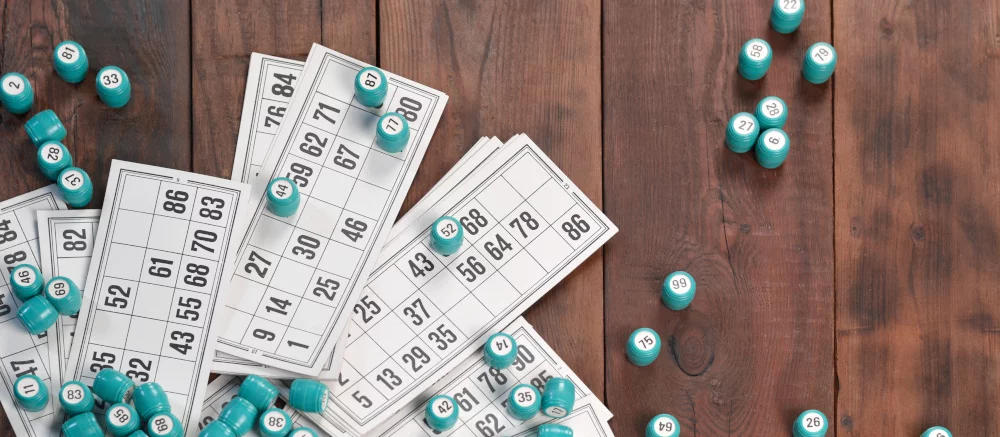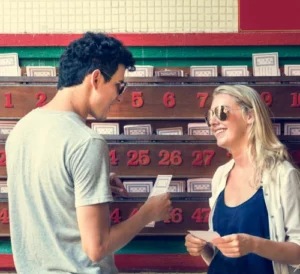
Every number has a story, and Sipho would tell you that without hesitation. For the past twelve years, he has played the same five digits in the lotto, never wavering. Each number carries its own emotional significance: the date of his daughter’s birth, the anniversary of his brother’s passing, the number of the house he grew up in, and even a gravestone he once saw in Soweto. He firmly believes these numbers came to him in a dream. Though they have yet to hit, he remains certain they will, eventually.
In South Africa, gambling rarely revolves around statistics or probability, instead, it is often a deeply emotional experience rooted in personal belief. The act of betting becomes something sacred and intimate. Numbers are no longer just digits but take on symbolic meaning as protectors or predictors of fate. Machines cease to be mere tools and instead become part of individual rituals, objects that are spoken to, argued with, or silently trusted. Every bet is anchored in a story, an instinct, or a sign. For some, it might be a number spotted on a passing license plate that lingered in a dream, while others remain loyal to numbers associated with a late family member. To those who bet, nothing about their choices feels random.
These rituals are not confined to what numbers are played, they extend into how and when bets are placed. Some individuals only play on Wednesdays, believing that day carries a specific energy. Others avoid gambling when it rains, interpreting weather as a signal. One woman in Pretoria insists she only plays when she dreams of water the night before, if the dream features the ocean, she bets confidently, but if it involves a river, she refrains. To outsiders, these habits may seem eccentric, but to those who follow them, they are necessary practices, shaped by personal memory and the universal need to find meaning amidst life’s unpredictability.
A quiet visit to a casino in the early hours reveals the depth of these behaviours. In one dim corner of a Durban floor at 2:15 a.m., a man methodically rubs the screen of his electronic bingo terminal three times before each spin. Nearby, an older woman murmurs to herself while gently tapping the machine in between rounds. They do not acknowledge each other, entirely absorbed in their own routines. Psychologists might label these acts as manifestations of the “illusion of control,” where individuals believe they can influence random outcomes through specific behaviours. However, these rituals provide more than perceived power; they offer comfort and familiarity in an otherwise uncertain world.
 The idea that luck can be passed down through generations is also widely believed. In Diepsloot, many still talk about a father who won significant prizes twice and was thought to have passed his luck to his son. Today, the son always wears his father’s watch when placing a bet, convinced it still holds that winning energy. Another man, now elderly, keeps a worn R1 coin tucked into his shoe, a charm given to him by his grandmother who once experienced a major win. Without it, he says, something feels off.
The idea that luck can be passed down through generations is also widely believed. In Diepsloot, many still talk about a father who won significant prizes twice and was thought to have passed his luck to his son. Today, the son always wears his father’s watch when placing a bet, convinced it still holds that winning energy. Another man, now elderly, keeps a worn R1 coin tucked into his shoe, a charm given to him by his grandmother who once experienced a major win. Without it, he says, something feels off.
Signs and omens are everywhere, if one chooses to see them. A bird perched on a windowsill, a flickering streetlight, a snack bill that totals R77, these seemingly ordinary occurrences take on great significance. Life does not always offer clear explanations, and in that ambiguity, people create their own logic. They follow these signs not because they guarantee success, but because they bring a semblance of order to chaos.
Of course, there are stories of heartbreak too. Mandla, now forty-four, played the same Pick 6 combination religiously for nearly a decade. One week, faced with overdue rent, he decided to skip his ticket. That very Saturday, his numbers came up. His cousin showed him the results, and Mandla remained silent for the rest of the day. Since that moment, he has never played again. He says the numbers betrayed him, although in truth, it was simply a case of chance asserting itself in its usual, unforgiving way.
At its center, gambling shares much in common with faith. Both depend on belief in the unseen and the hope that a change is just around the corner. The rituals, the lucky charms, the numbers etched onto scrap paper, none of these are foolish gestures. They are expressions of persistence, symbolic tools for navigating a world that is rarely predictable or fair. When someone places a five-rand bet, it often carries far more weight than the money itself. It is a form of resistance, a quiet act of optimism, even a whispered prayer.
Lindiwe continues to use her birthday and her mother’s anniversary numbers every week without fail. Themba refuses to visit a casino unless he is wearing his lucky socks. In Eldorado Park, there is a man who avoids the number fourteen at all costs, convinced it brings nothing but bad luck. Whether these beliefs hold any truth is ultimately irrelevant. What truly matters is that they persist. They endure in the mechanical whir of a lotto machine, in the silent moment before a spin, and in the numbers carried from memory, family stories, and fleeting dreams.
Even when logic falters and the odds prove merciless, the dream remains intact.







